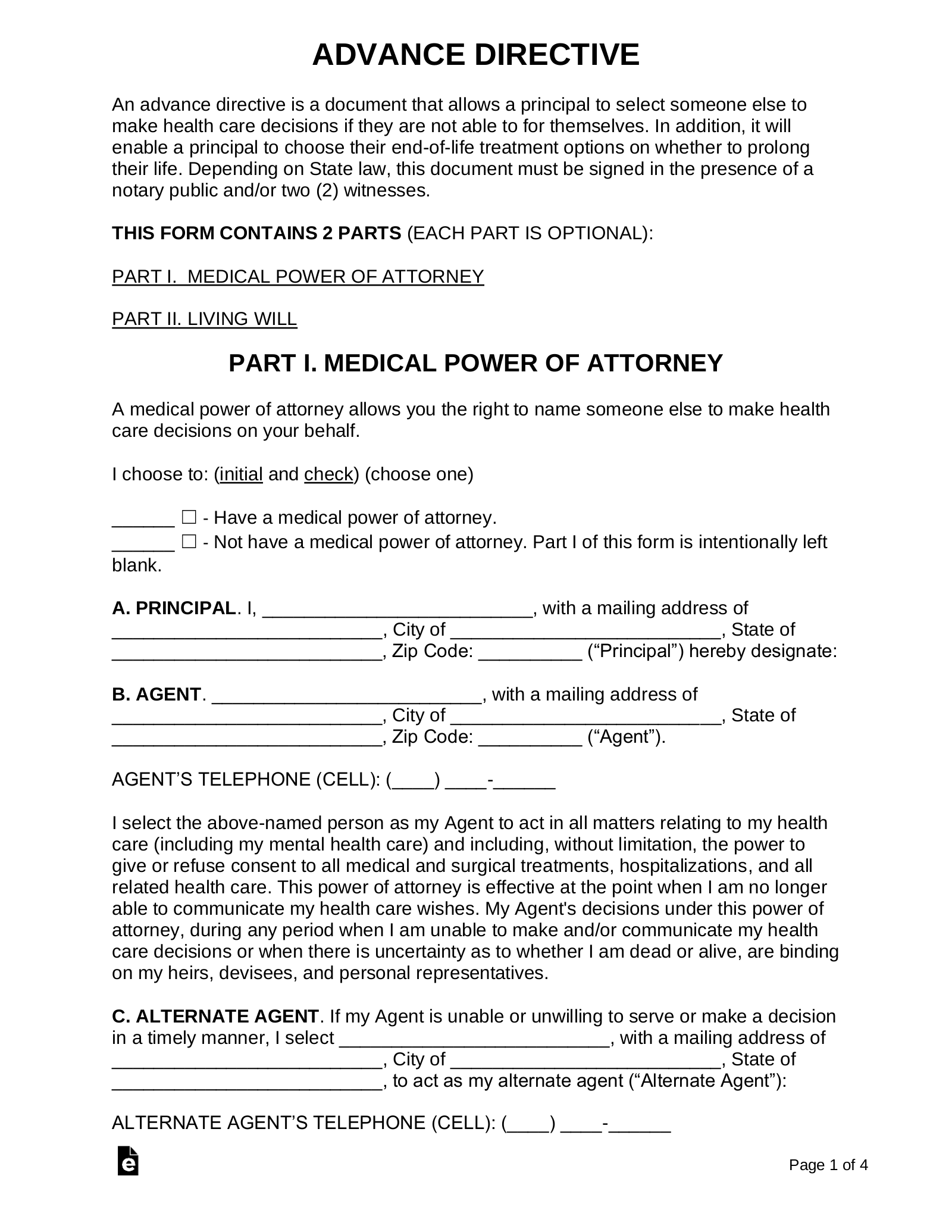What is an Advance Care Directive?
An Advance Care Directive (ACD) is a legal document that outlines your wishes regarding your medical care in case you are unable to make decisions for yourself. It’s like a roadmap for your medical providers, guiding them on what kind of treatment you’d prefer if you become incapacitated.
Types of Advance Care Directives

Image Source: eforms.com
There are generally two types of Advance Care Directives:
Living Will: This document specifies your wishes regarding life-sustaining treatments, such as artificial respiration or feeding tubes.
Why is an Advance Care Directive Important?
An ACD can provide peace of mind for you and your loved ones. It ensures that your medical wishes are respected, even if you can’t communicate them directly. It can also alleviate the burden on your family members who may be faced with difficult decisions about your care.
Creating Your Advance Care Directive
1. Gather Information: Think about your values, beliefs, and preferences regarding medical treatment. Consider what kind of care you’d want in different scenarios, such as a terminal illness or a sudden accident.
2. Choose Your Healthcare Agent: Select a trusted friend or family member who you believe will carry out your wishes faithfully.
3. Consult with a Healthcare Professional or Attorney: A healthcare professional or attorney can help you understand the legal implications of an ACD and ensure that it is properly executed.
4. Review and Update: Your ACD should be reviewed regularly, especially as your circumstances or medical conditions change.
Conclusion
An Advance Care Directive is a valuable tool for planning your future healthcare. By expressing your wishes in advance, you can ensure that your medical care aligns with your values and preferences. It’s a proactive step towards maintaining control over your healthcare decisions, even when you may not be able to do so yourself.
FAQs
1. Can I change my Advance Care Directive at any time? Yes, you can modify your ACD at any time. It’s important to review and update it as your circumstances or preferences change.
2. Is an Advance Care Directive legally binding? The legal status of an ACD can vary depending on your state’s laws. However, in most cases, an ACD is considered a legally binding document.
3. Can my healthcare agent make decisions against my wishes? No, your healthcare agent is obligated to follow the instructions outlined in your Advance Care Directive. If they are unsure about your wishes, they may consult with your healthcare providers or other trusted individuals.
4. What if I don’t have an Advance Care Directive? If you do not have an ACD, your family members may have to make difficult decisions about your medical care based on what they believe you would want.
5. Can I name multiple healthcare agents? Yes, you can designate multiple healthcare agents to act as a backup if your primary agent is unable or unwilling to serve.
Advance Care Directive Form







